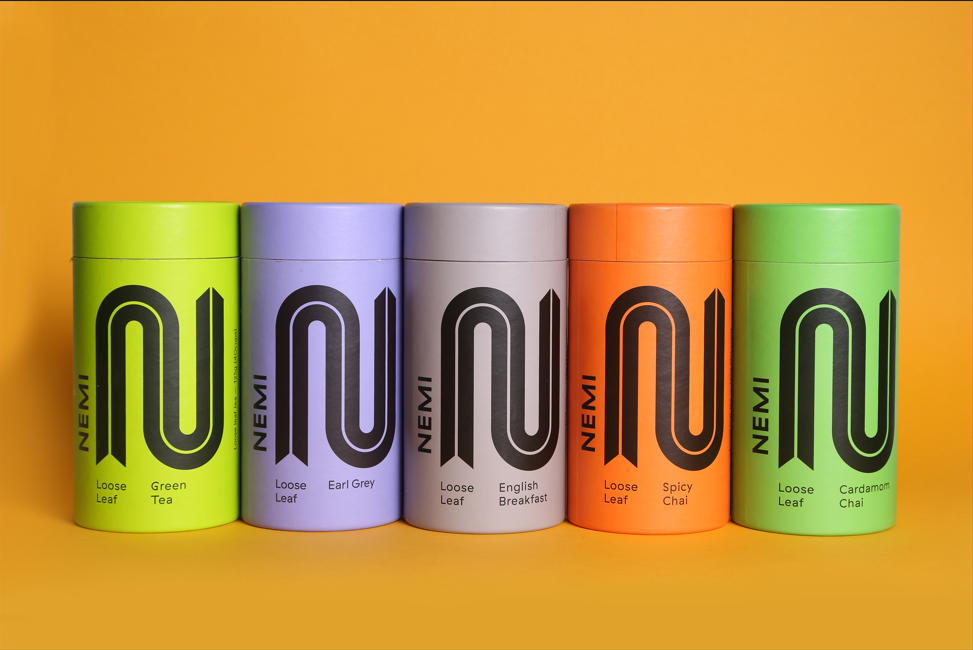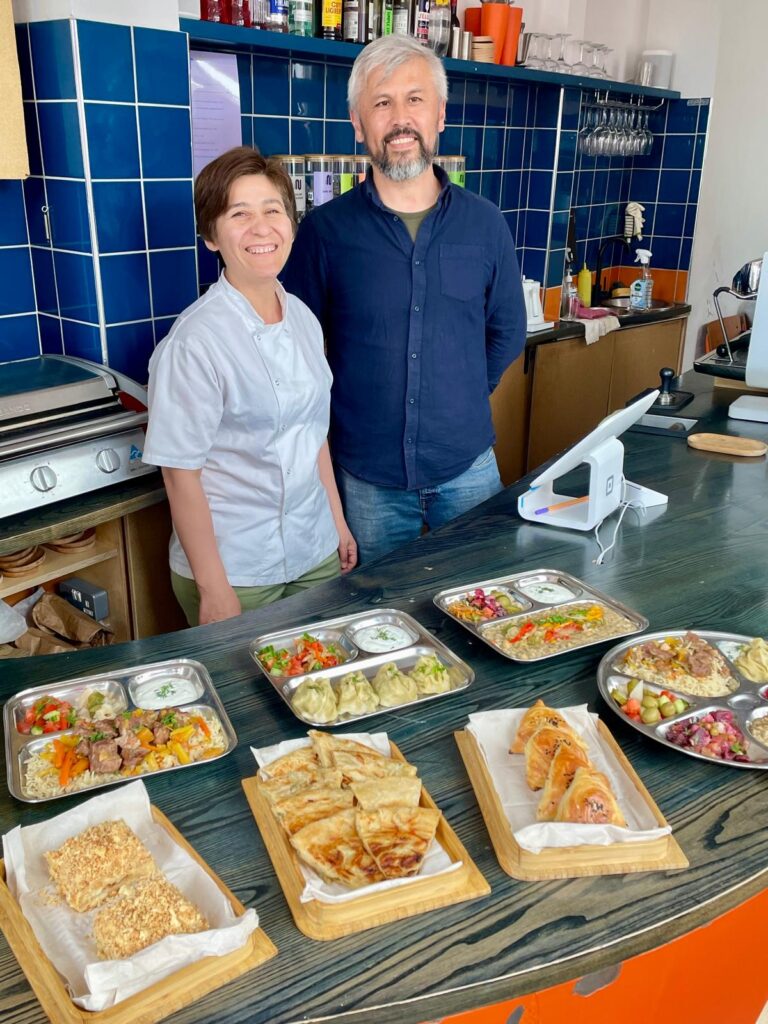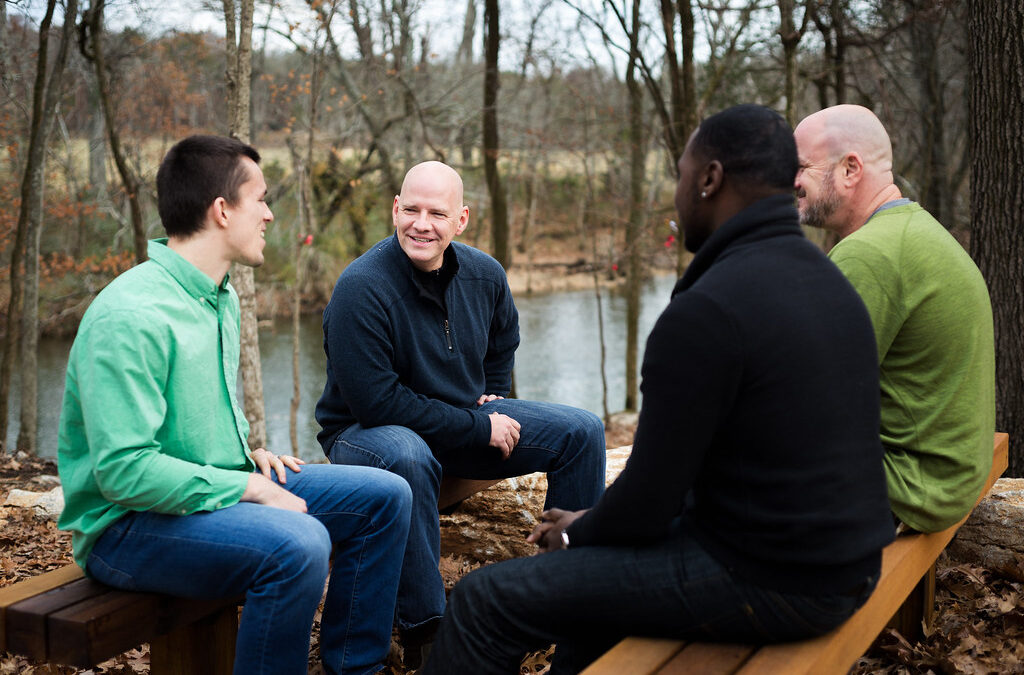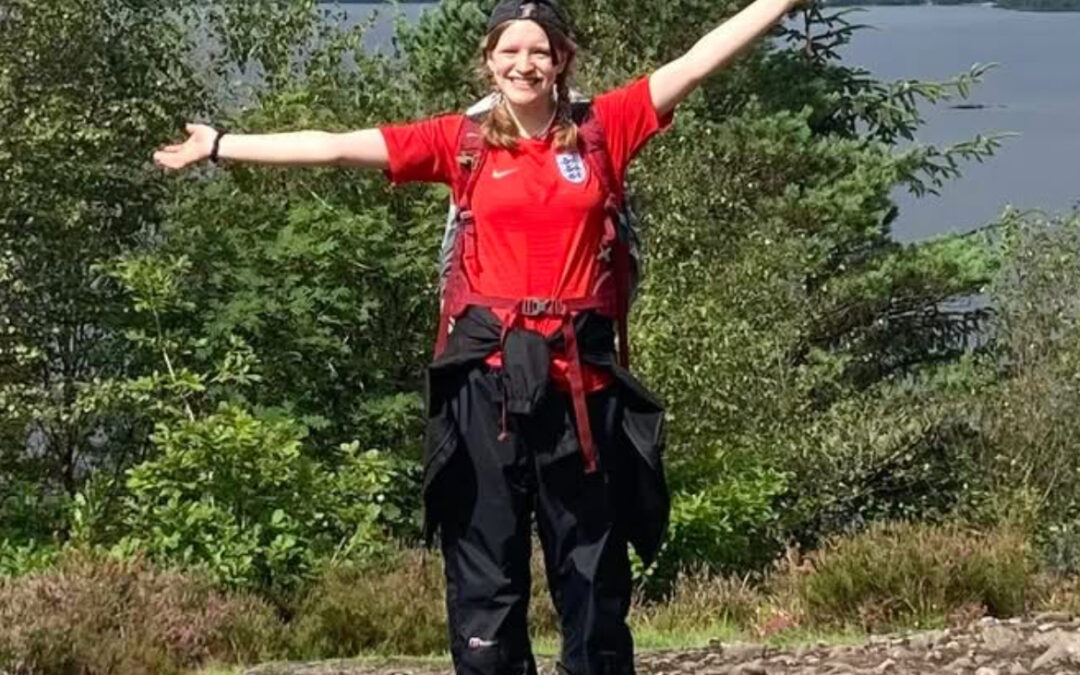Trampoline cafe is a social enterprise business based in London. Their aim is to give refugees and asylum seekers the boost they need to help them on their journey.
Trampoline is a community interest company, with two cafes: one in Angel and one in Oxford Circus. It’s in these cafes that refugees take part in training programmes that allow them to practice speaking English, develop their confidence and, most importantly, provide them with a reference for future job prospects.
Dale Bentley, Head of Operations at Trampoline, tells The Optimist, “it’s not necessarily to retrain them as hospitality professionals, we have lots of refugees who come to us who are highly skilled professionals, but these qualifications don’t necessarily translate to the UK, or have lost all their confidence.
“We’ve had a Ukrainian lady who was an incredible puppeteer, we’ve had an Iranian accountant, we’ve had a music teacher.
“All of these people in their own right and in their own country are incredibly skilled, but just can’t continue in that kind of vocation in the UK at this present time.
“Training in the hospitality industry is something that is very accessible and develops a lot of transferable skills.”
Trampoline provides three different programs: bounce, jump, and leap.
Bounce is a three-day program that is an introduction into the hospitality industry. Participants can learn as much or as little as they want, from starting to develop customer service skills to just sitting back and observing how everything works.
Jump is a two-day, paid, training program which is like bounce but more in depth and detailed.
Leap is six months long and paid. It goes into much more detail than the other programs, offering training on the operation of a coffee shop, and the financial side of a business.
If you’re enjoying this story – try how backpacking changed Anna Cross’ life.
“Our bounce program is definitely the most popular one,” Dale says. “It’s much more accessible and much less commitment, which is great for people who have other things going on, like if they’re studying.
“We can deliver the most amount of impact with bounce, too, because it’s only three days. We can get two graduates a week with this program, whereas our other programs will only have two spaces which are obviously filled up for a longer period of time.”
Dale is no stranger to working with social impact companies. His career started at German soft drinks company Lemon-Aid, who give a percentage of their profits to the Lemon-Aid and ChariTea Foundation. This foundation supports communities in the global south, specifically where Lemon-Aid gets the ingredients for their drinks from.
“To me, they’re [Lemon-Aid] a poster child for a social impact business,” Dale says, “they’ve raised over 10 million [euros] to date.
“And that money is changing whole communities in countries like Peru, Rwanda, South Africa, Madagascar, all the places where they get their ingredients from.”
NEMI Teas is a social enterprise founded by Trampoline’s owner, Pranav Chopra. This means that 51% of the profit from NEMI Teas goes to support the social mission, which is Trampoline.
Dale has been friends with Pranav since the beginning of Trampoline seven years ago, but it was only recently he was convinced to join the team.
“Three years ago, as Trampoline began to expand, Pranav asked me to jump ship to NEMI to help develop and scale the social impact of Trampoline,” Dale says.
It started as a market stall in Angel. Pranav sold his homemade chai, an old Indian family recipe, and began to attract attention. Before long, the stall was so busy that he needed help.
For a multitude of reasons, including Camden Council’s unwavering support, Angel has a large refugee community, with lots of initiatives in and around the area.
Pranav decided to hire refugees to help him run the stall. The business developed organically, with people wanting more and more of this tea. They would ask: ‘Do you do other types of tea?’, ‘I’d love to have your chai in my coffee shop, but do you also have green?’.
So, eventually, Pranav gave the people what they wanted. He now has a fully functioning tea company, offering seven types of tea: earl grey, lemongrass and ginger, cardamom chai, spicy chai, peppermint, green tea, and English Breakfast tea.

“I think the aim was always to help refugees,” Dale adds, “a coffee shop felt like a really accessible way to attract people.
“Hospitality is something that you can go into without any qualifications, and the skills developed can be suitable for many different industries.”
Trampoline has partnered with contract caterers, so if they are looking for staff, they can send over recommendations of people who have been through their training programs.
Not only does Trampoline recommend their graduates to other employers, they offer career opportunities within the business too.
“The food menu reflects the refugees we are working with at the time.” Dale explains, “Just by chance, two of our chefs are Sri Lankan, so at Angel at the minute we have a Sri Lankan menu from Wednesday to Sunday, and Monday and Tuesday it’s Uzbekhi.

“And then in the past we’ve had Eritrean, Ethiopian, Ukrainian, Syrian, Iranian. So it varies.”
Trampoline has changed the lives of so many people, and are constantly looking for ways to expand their business and to positively impact even more.
If you are interested in aiding refugee support, you can visit one of the Cafes at: 27 Camden Passage, London N1 8EA, or 20 Cavendish Square, London W1G 0RN, or purchase from the NEMI Teas website.



